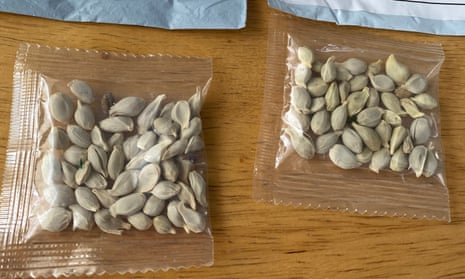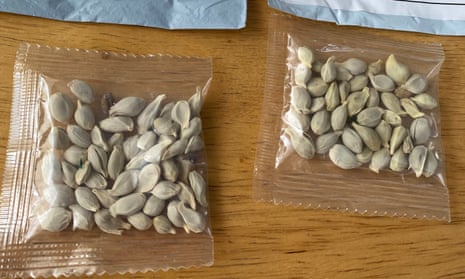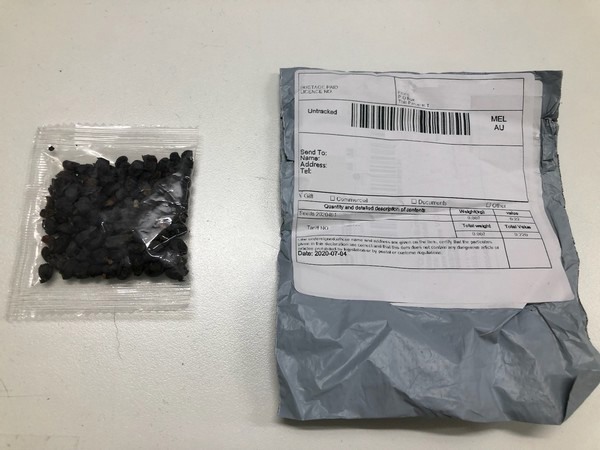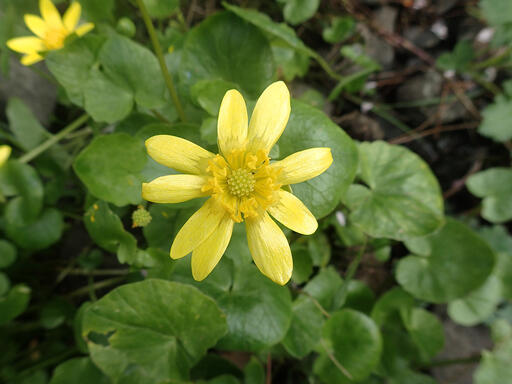
Mystery Seeds and Homestead Biosecurity: An Oregon Homesteader's Guide
Have you received a package in the mail you didn't order? Perhaps it was labeled as jewelry or a small electronic, but something felt…off? You're not alone. Homesteaders across Oregon (and the country) have been receiving unsolicited packages of seeds, often originating from foreign countries like China. These "mystery seeds" may seem innocuous, but they pose a significant threat to our homesteads, our local agriculture, and the wider ecosystem. They could be invasive species, carry devastating plant diseases, or even be harmful to livestock and humans.

This post will guide you through what to do if you receive mystery seeds, how to protect your homestead with a robust biosecurity plan, and how to source your seeds responsibly. Let's work together to keep our Oregon homesteads thriving and safe.
Oregon Department of Agriculture (ODA) Guidelines: What to Do If You Receive Mystery Seeds
The Oregon Department of Agriculture (ODA) has specific recommendations for handling these unsolicited seed packages. Following these steps is crucial to preventing the spread of potentially harmful organisms.
Do Not Plant! This is the most important rule. Under no circumstances should you plant these seeds. Planting them could introduce invasive species or plant diseases that could devastate your garden, your neighbor's farm, or even entire ecosystems.
Report Immediately: Contact the ODA as soon as possible. You can report the package through their website or by calling their hotline.
- ODA Website: Oregon Department of Agriculture
- ODA Hotline: (503) 986-4600
Store Securely: Carefully store the seeds and all accompanying packaging, including the mailing label. Place everything in a sealed container, such as a zip-lock bag or a jar with a tight-fitting lid. Keep the container away from other plants, animals, and children to prevent accidental exposure or contamination.
Await Instructions: Once you've reported the package, the ODA will provide you with further instructions on what to do with the seeds. This may involve sending the seeds to them for analysis or providing specific disposal instructions. Follow their guidance carefully.
Seed Sourcing Checklist: Vet Your Seed Suppliers
Protecting your homestead starts with sourcing your seeds responsibly. A little due diligence can go a long way in preventing problems down the road. Use this checklist to vet your seed suppliers:
Source Verification: Purchase seeds only from reputable seed companies, local growers, or trusted seed exchanges. Look for clear labeling that includes the seed name, variety, and a way to contact the seller. Avoid buying seeds from anonymous sources or online marketplaces where the seller's identity is unclear.
Origin Transparency: Check for detailed information about the origin of the seeds. This should include the country, region, and, ideally, the specific farm where the seeds were grown. Knowing the origin helps you assess the potential risk of introducing invasive species or plant diseases.

Certifications: Look for certifications such as organic (USDA Organic) or Non-GMO Project Verified. While these certifications don't guarantee the absence of all risks, they indicate a higher level of quality control and adherence to specific standards.
Reviews and Reputation: Before buying seeds from a new supplier, do your research. Read online reviews, check with other homesteaders in your area, and look for any history of selling contaminated or mislabeled seeds. A reputable supplier will have a track record of providing high-quality seeds and excellent customer service.
Avoid Unsolicited Offers: Be very wary of unsolicited seed offers, especially those that seem too good to be true. Extremely cheap prices or offers that arrive out of the blue are often red flags. Stick to trusted sources and avoid taking unnecessary risks.
Citizen Science Call to Action: Help Track and Identify Mystery Seeds
You can play an active role in tracking and identifying mystery seeds through citizen science initiatives. Your observations can help researchers and regulatory agencies understand the scope of the problem and develop effective solutions.
Document Everything: If you receive a mystery seed package, carefully document everything. Take clear photos of the packaging, including the mailing label, any customs declarations, and the seeds themselves. Note the date you received the package and any other relevant details.
iNaturalist: Consider uploading your photos and observations to iNaturalist (https://www.inaturalist.org/). This platform allows you to share your findings with a global community of scientists and naturalists who can help identify the seeds. Be sure to tag your observations with relevant keywords, such as "mystery seeds" or "unsolicited seeds."
ODA Citizen Science Programs: Check the ODA website for any specific citizen science programs related to mystery seeds or invasive species. They may have specific protocols for reporting your findings or submitting samples for analysis.

By participating in citizen science, you can contribute valuable data that helps protect our homesteads and the wider environment.
Conclusion: Vigilance and Responsible Action
The "mystery seed" phenomenon highlights the importance of vigilance and responsible seed sourcing for protecting our homesteads and the broader agricultural community. By following the ODA's guidelines, vetting our seed suppliers, and participating in citizen science initiatives, we can mitigate the risks posed by these unsolicited packages.
Remember, the health and well-being of our homesteads depend on our collective efforts to prevent the introduction of invasive species and plant diseases. Let's work together to ensure a thriving and sustainable future for Oregon's homesteading community.